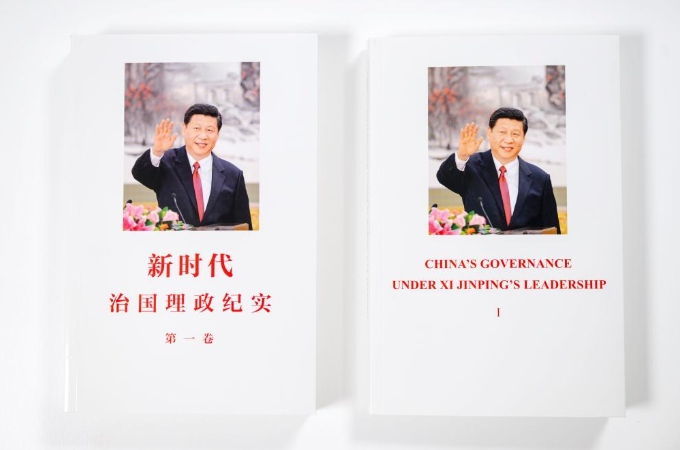United efforts can promote regional as well as global benefits
Source: China Daily | 2022-04-01 | Editor:Irene

The Saindak Copper-Gold Mine is the first large-scale modern non-ferrous mine in Pakistan. (Photo provided to China Daily)
China's historical relations with Muslims date back to the time of the Islamic Khilafah, or Caliphate, in which the ancient Silk Road was a key factor, and the revival of historical links between them today under the Belt and Road Initiative has the potential to make significant progress.
For the Muslims of South and East Asia to move further on the path of development, they will have to enhance exchanges and cooperation with China. This includes Pakistan and Saudi Arabia.
Pakistan is the world's first Muslim nuclear power and has extensive strategic and defense experience, while Saudi Arabia is a strong country rich in oil, as well as a religious center for Muslims.
If these two brotherly Muslim countries use their economic, military and financial capabilities to further carry on BRI projects, the people of Saudi Arabia and Pakistan will be more prosperous, and the conditions of poor people in the region, especially Muslims, can change very fast.
So far, the China-Pakistan Economic Corridor is being upgraded and extending services to neighboring countries. The synergy between the BRI and the Saudi Vision 2030not only benefits both parties, but also becomes a pacesetter for regional cooperation.
The fame and success of the BRI are testament to the fact that the Group of Seven rich economies, led by the United States, seem concerned about the China-initiated global program and are teaming up to stage their own infrastructure programs and projects to counter China's reach.
China, however, has been consistent in promoting common growth and benefits among developing nations and seeking good relations with as many partners as possible, including all members of the Organisation of Islamic Cooperation as well as both Ukraine and Russia, though it does not go for alliance.
If we look at the Islamic countries, there is a feeling that Pakistan, Saudi Arabia, Turkey, Iran and other major Islamic countries should show unity instead of division, a theme of the recent OIC meeting.
The joint declaration issued after last week's OIC session explicitly states that the OIC seeks to resolve all major issues, including the resettlement of Palestine and Afghanistan. It seeks to send a message to the world that it must resolve its issues through dialogue rather than war.
The implication is that at present China is a noncontroversial country that does not have military involvements with any other country, and that it has used its economic plans to reach and sustain the markets of Europe and the Americas, apart from Asia and Africa.
At the 48th Foreign Ministers' Summit of the OIC in Islamabad, Pakistani Prime Minister Imran Khan conveyed a message of peace and prosperity to the world with due contributions by both China and the OIC.
Leaders of the Muslim countries also need to think more about joint economic programs that fit into their realities.
If Pakistan, Saudi Arabia and China come together in building up new patterns of all-around and high-level cooperation, it will have a positive impact on the regional and world economy. This close partnership seems natural in the sense that these three already have good relations with each other.
Saudi Arabia is a brotherly Islamic country of Pakistan, which has provided financial support to Pakistan at all times, while Pakistan has helped the other without any hesitation. Moreover, relations between China and Pakistan are also of a historic nature, and those between China and Saudi Arabia withstand time.
The countries could also reach joint economic and financial agreements so that their trilateral cooperation could be taken forward.
You May Like
-
Shenzhen's trade with B&R countries in Jan-Oct up 12.9 pct
The southern Chinese city of Shenzhen saw its imports and exports with countries and regions along the Belt and Road (B&R) grow to 606.1 billion yuan (94.9 bill...
InKunming 2021-11-23 -
China-Europe freight train facilitates smooth Christmas expo...
A special China-Europe freight train carrying Christmas goods is on the way to Germany's Duisburg, from where the shipment will be dispatched to other European ...
InKunming 2021-11-15 -
China's import expo bolsters Belt and Road cooperation
One week before the fourth China International Import Expo (CIIE) kicked off, a China-Europe freight train arrived in Shanghai from Hamburg, Germany, completing...
InKunming 2021-11-10 -
2021 Belt and Road International Regatta to be held in Beiha...
The 2021 Belt and Road International Regatta will be held in Beihai from November 4 to 12 in south China's Guangxi Zhuang Autonomous Region, the local Sports Bu...
InKunming 2021-11-04 -
Revival of ancient Silk Road to strengthen regional connecti...
The China-Pakistan Economic Corridor (CPEC) and the revival of the ancient Silk Road will strengthen infrastructure connectivity and develop a shared future for...
InKunming 2021-10-26 -
Chinese-built modern railway in Kenya marks 1,500 days of sa...
The Chinese-built Standard Gauge Railway (SGR) linking Kenya's port city Mombasa to the capital Nairobi is celebrating 1,500 days of safe operation as it seeks ...
InKunming 2021-08-04 -
China-proposed BRI considers common interests, promotes glob...
Palestinian President Mahmoud Abbas said Tuesday that the China-proposed Belt and Road Initiative (BRI) takes people's common interests into consideration and...
InKunming 2021-07-09 -
China's Xiamen port registers 1,000 Silk Road Shipping voyag...
The 1,000th Silk Road Shipping voyage this year set off Monday from Xiamen, a coastal city in east China's Fujian Province.
InKunming 2021-06-08 -
China-Europe freight train adds new route to Budapest
A new China-Europe freight-train route linking the city of Jinhua in east China's Zhejiang Province with Budapest in Hungary was launched on Monday.
InKunming 2021-06-08 -
Chinese manufacturing hub reports trade growth with B&R coun...
The Southern Chinese city of Dongguan, the country's manufacturing hub, saw robust growth in its foreign trade with countries and regions participating in the B...
InKunming 2020-02-16







